I end my author bio here at Meeple Mountain with the line:
“And despite being a DM, I have an inherent dislike of six-sided dice.”
As a kid, I played lots of games that were either roll-and-moves or spin-and-moves. As soon as I discovered (what are now called) abstract strategy games, I hardly looked back. I dismissed games involving dice as being solely luck-based: you might as well shorten the entire game to each player rolling a die and the highest number wins. Give me a game that requires thought over random numbers any day.
Notice that “hardly looked back”, in that paragraph? Yeah. Allow me to explain.
In my earliest 20s, board games were typically either kids’ fair or dense, all-day war games. And forget about your Friendly Local Game Stores. The closest one (had I even known about it) was over 500 over miles away.
One evening, a friend introduced a group of us to a ridiculous, push-your-luck dice-chucker called Cosmic Wimpout (KBX Associates 1976). With its hand-written rule book, complete with hippy illustrations…
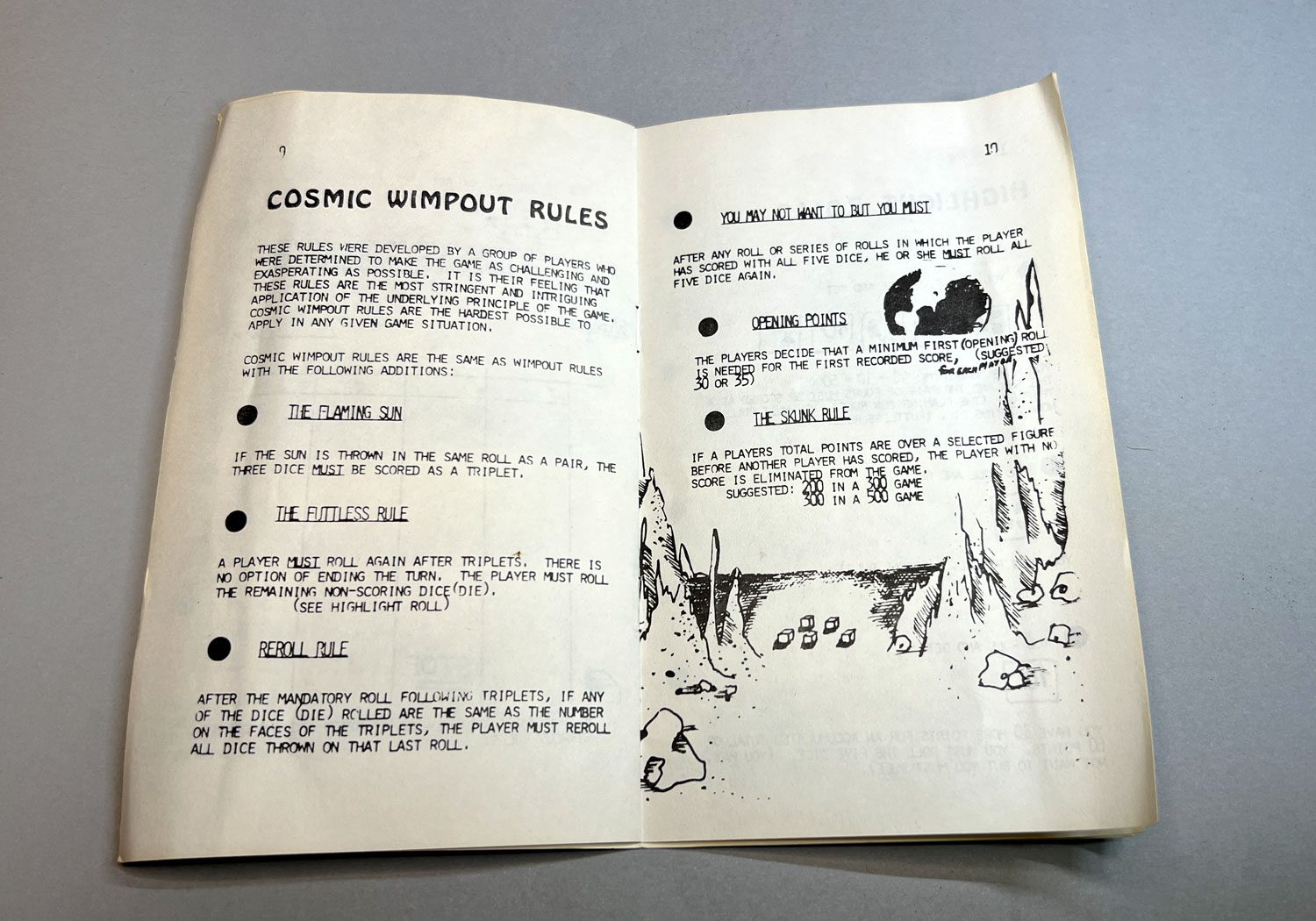
…and six-sided dice with more symbols than numbers and a single Cosmic Sun die face, this was not a game to be taken seriously.
Even the board was just a piece of felt that had to be unfolded and never quite laid flat.
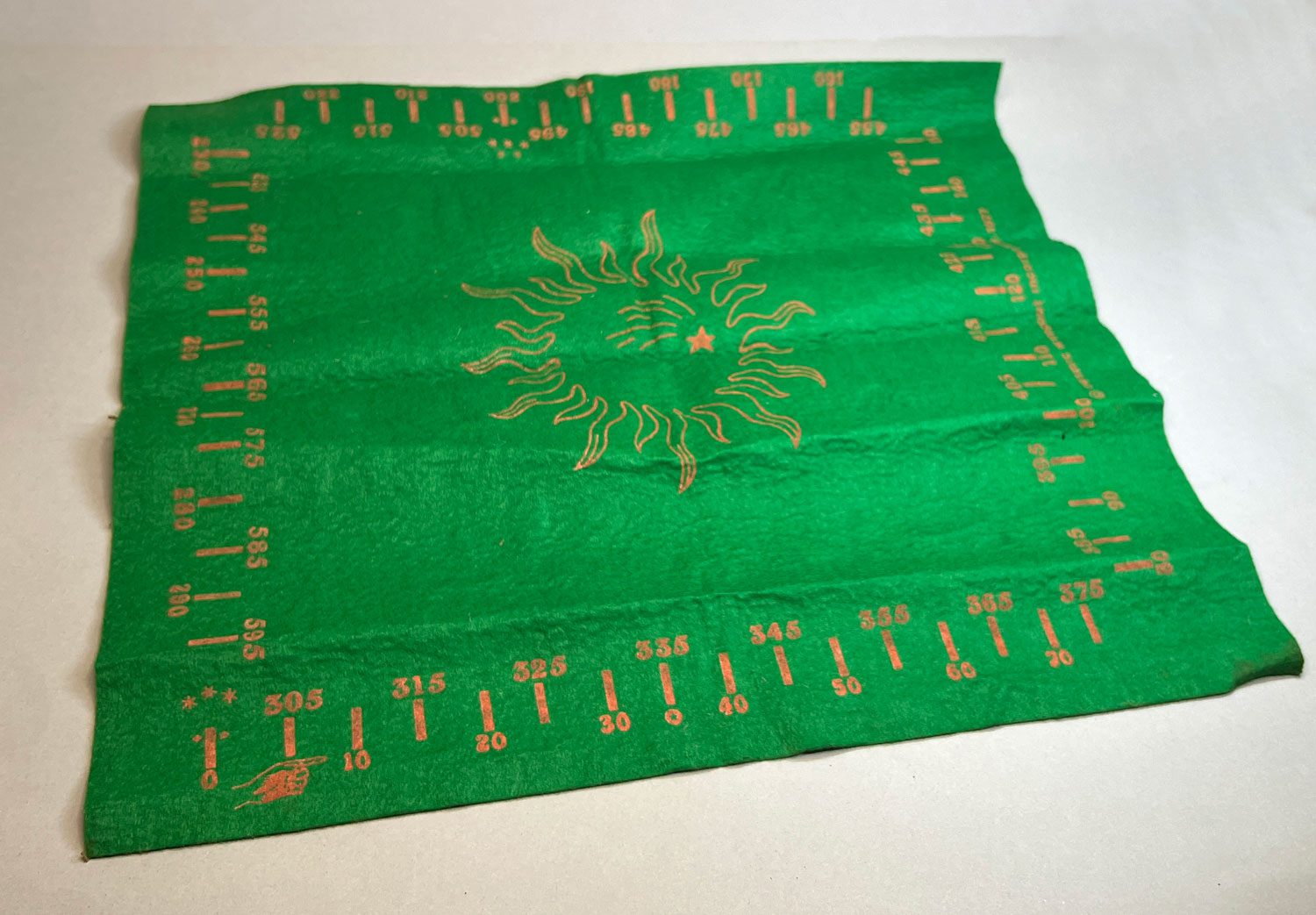
And yet, there was something about Cosmic Wimpout.
Stop Kicking That Hacky Sack and Turn Down That Dead Tape. It’s Time to Roll Some Cool Dice.
Playing the game is simple: roll five dice. If you roll 5 or a 10, you score that many points. If you roll three-of-a-kind, you score 10x that number (three 2 Space Ship dice is 2×10 = 20), plus the face value of any 5s or 10s you may have rolled. If you roll four of a kind, only three of them count for scoring. Because you rolled scoring dice, you can take your paltry pittance of points and pass the dice to the next player, OR you can re-roll those non-scoring dice.
If you roll a 5 or a 10, you score those additional points. If you score on all five dice, you must risk your just-accumulated points by rolling again.
However, if you roll no 5s, 10s, you Train Wreck and score nothing.
That night, we had a blast playing the game. It was filled with trash-talking ‘encouragement’ for players to not settle for measly small numbers but to Go Big—keep rolling until you either have hundreds of points or bust. Since the winner was the first to score over 500 points, doing that over a series of minuscule rolls just didn’t seem in keeping with the spirit of the game was.
Only rolls totaling 350+ points seemed acceptable.
The designer (listed in the rule book as Energy Rider) seemed to account for this: there is a Freight Train Rule: if in a single roll, you roll five-of-a-kind, you score 100x the number represented (five of the 4 Lightning Bolts is 4×100 = 400 points).
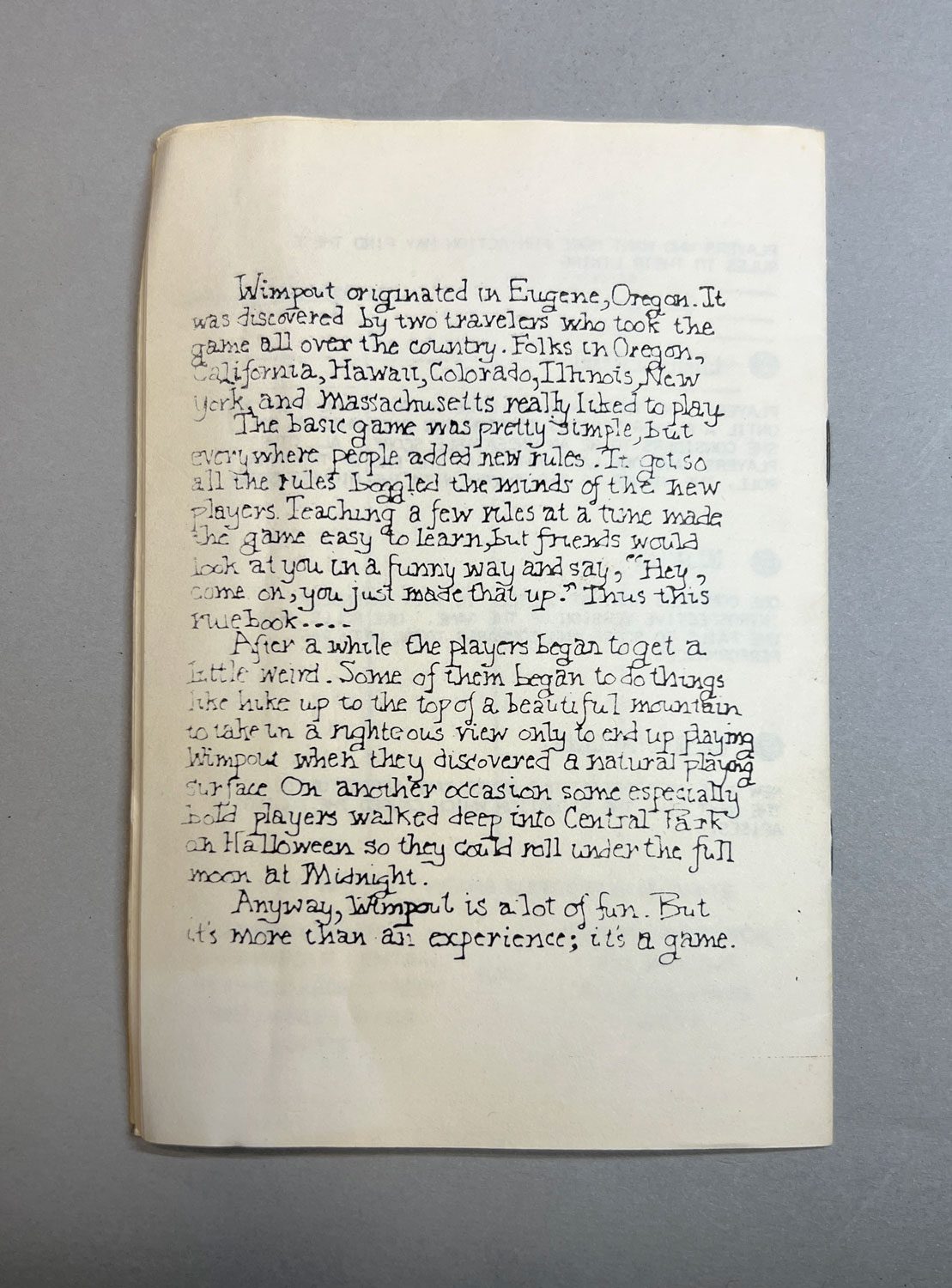
However, my favorite part of this rule is when you roll five 10s, or 1000 points. The rules state that’s way too many points, so you automatically lose the game. (After years of playing, this finally happened. When it did, we all stared in silent disbelief at the five 10s our friend Glenn had rolled—and then everyone began laughing hysterically.)
Stupid Fun
Most of my gaming sessions involve crunchy Eurogames or abstracts where there is zero luck involved. I tend to look down my Real Gamer’s snobby nose at most games that involve any type of chance events. Why then, would I make exceptions for certain games, especially dice-chuckers?
During those Cosmic Wimpout days, I referred to the game as Stupid Fun, a phrase I have continued to use. It’s not that I consider the game itself to be stupid, it’s just my way of downplaying expectations on the complexity of the game while emphasizing its enjoyable aspects.
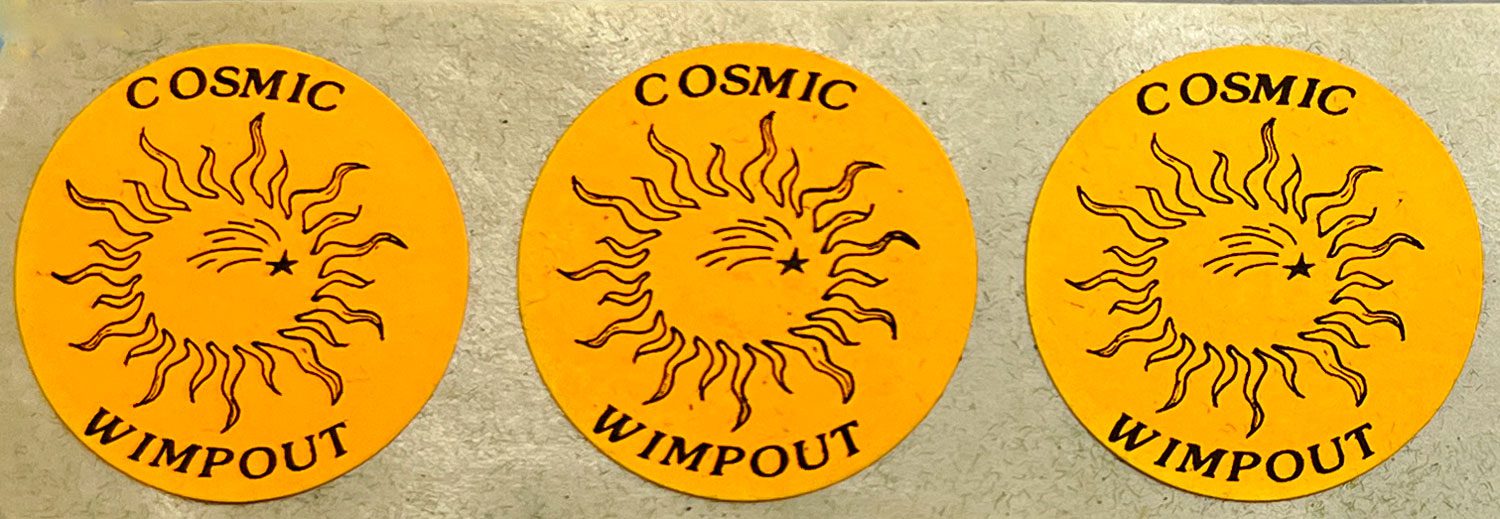
So, yes, Cosmic Wimpout is stupid fun.
Back in the Day
Another hippy aspect to Cosmic Wimpout is that there are no player pieces. Instead, we were each encouraged to find a marker that represented something special to us. In one game, my friend Twinkle used a colorful watch where the second hand turned a separate color wheel. This meant it was constantly changing colors. After pleading with her, she allowed me to keep the watch, and it’s been my player token ever since.
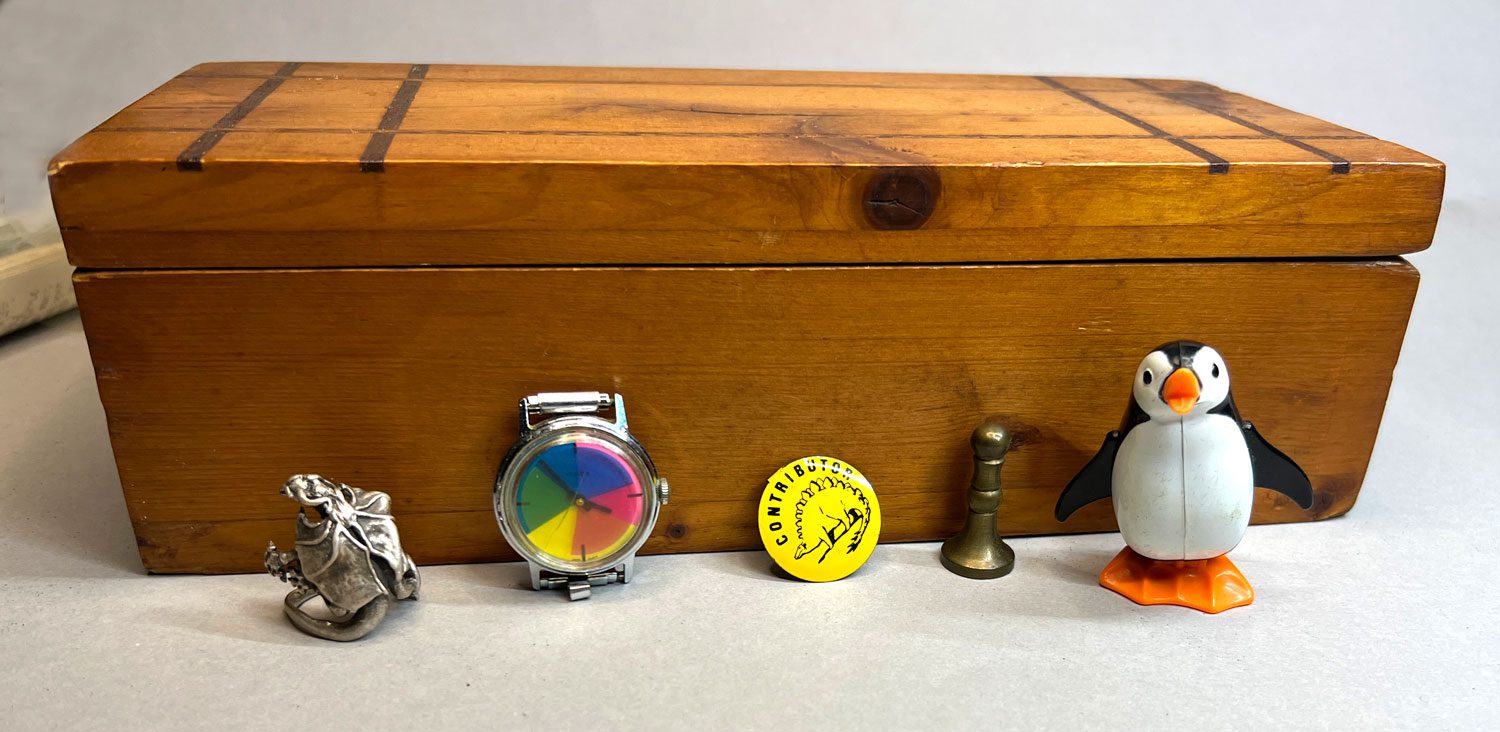
Back in the day, I played Cosmic Wimpout so much that my original silkscreened dice started losing their markings. I bought a second set of dice and have kept them, next to my original dice—along with all my neat player tokens for people who didn’t have anything in their pockets to play with. They’re all still in the wooden box I made in my high school shop class, traveling with me from place to place, decade to decade.
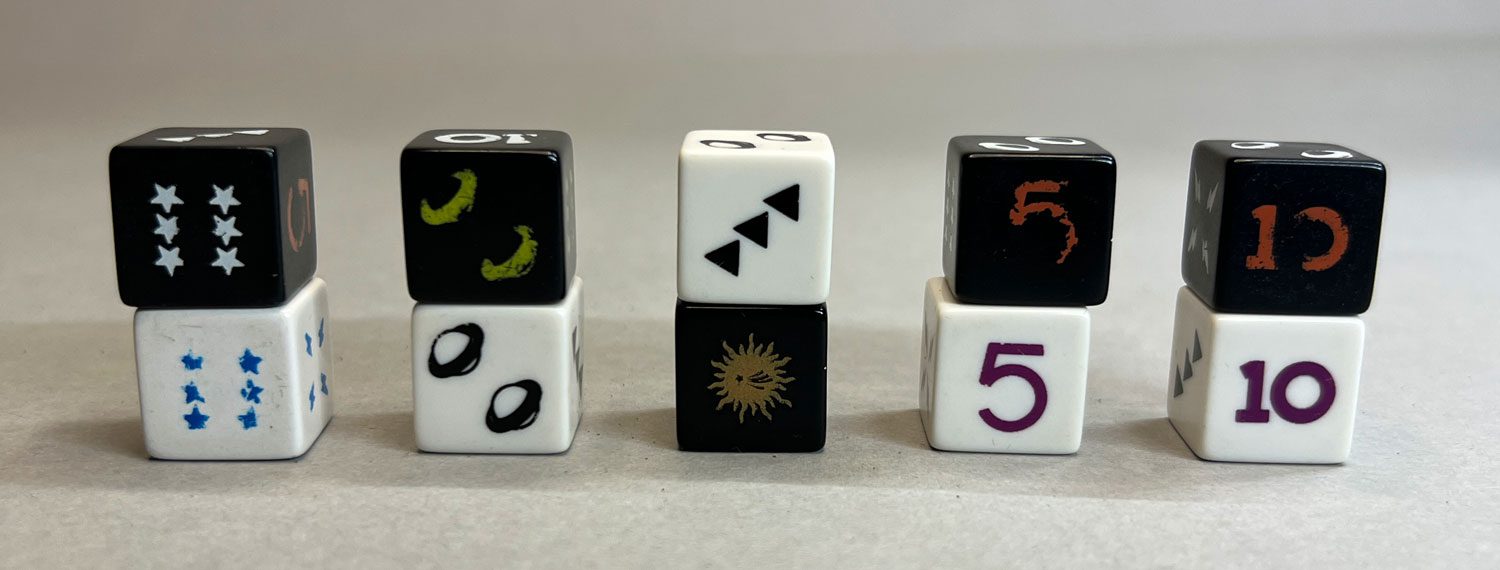
And that’s part of what I like about this Back in the Day series. We here at Meeple Mountain not only love games, but many of us have loved games for most of our lives. Sharing some of those games and memories is a great part of this hobby.
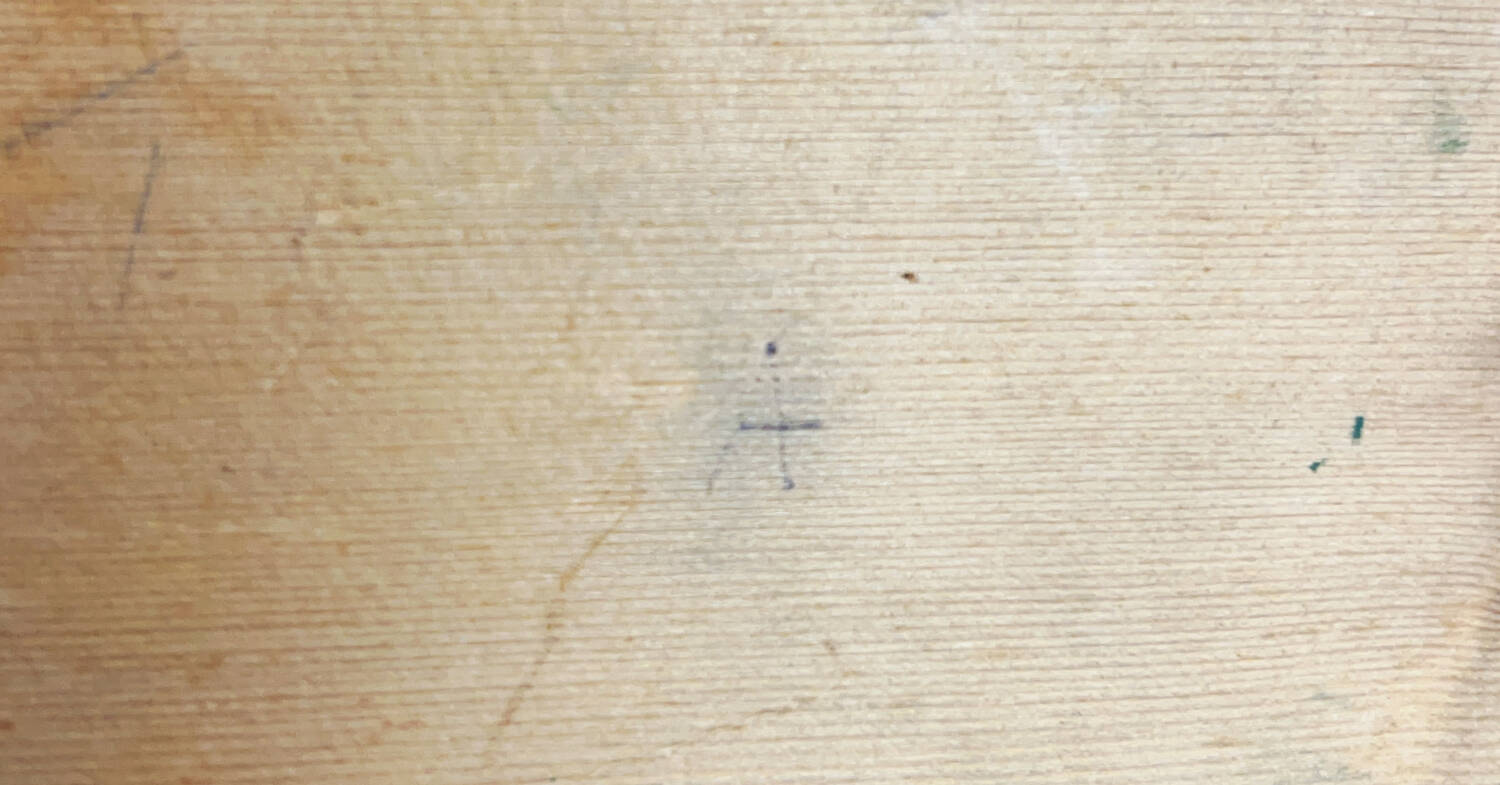


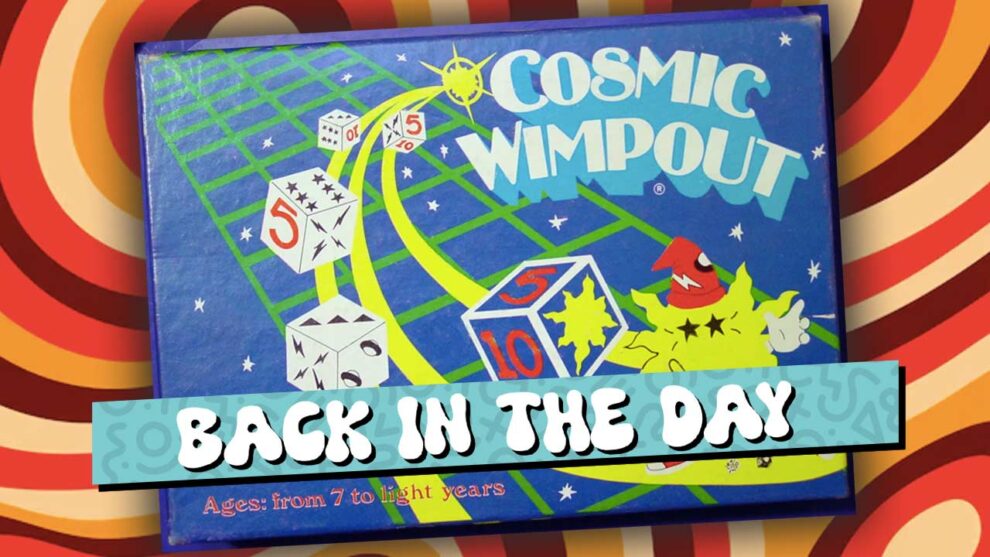
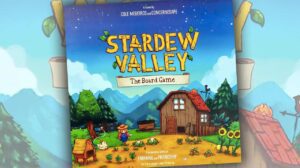
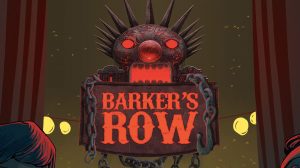

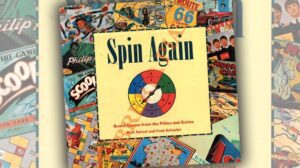

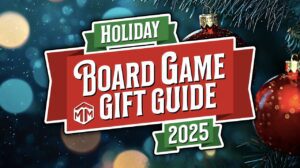


As a former Intergalactic Champion (1991), I am so pleased that there are people who cherish Cosmic Wimpout as much as I. I started playing at Rutgers University in 1982 and become close with the Wimpout Circus. I have some of those exceptionally rare dice and boards stashed away. Thank you so much for keeping the Wimpout spirit alive!!
Cosmic Wimpout was a game I thrust upon my various groups of friends back in the day. I haven’t played it in years, but it’s one of those games that evokes lots of good memories. (For instance, the stunned silence that fell over the group when someone rolled five 10s and therefore automatically losing the game.)
If you’re ever in the Raleigh area, let me know. We should play a game together!